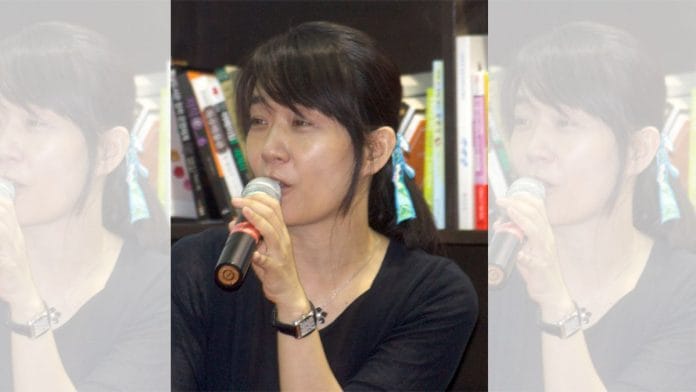New Delhi: The Nobel Prize in Literature has been awarded to South Korean author Han Kang, known for her unmasking of collective trauma in ways that are often unpalatable to polite society. In their announcement, the committee said she had won “for her intense poetic prose that confronts historical traumas and exposes the fragility of human life”.
Han previously won the International Booker Prize for arguably her best-known novel, The Vegetarian, which was published in 2007. Yeong-yhe, the book’s protagonist, decides to stop eating meat, a decision that’s opposed most of all by her Vietnam War veteran father. When he attempts to feed her meat, she slits her wrists with her family as audience, after which she is institutionalised.
“I wrote my fourth novel starting with the question in the last scene of The Vegetarian: how do we come to terms with human life, which is so beautiful and so violent at the same time,” said Han in a previous interview.
53-year-old Han was born in Gwangju, South Korea, and has written six books. Her most recent offering is I Do Not Bid Farewell, published in 2021. Her father is also an author, the novelist Han-Seung Won. Similar to his daughter, his books also often consist of characters who are ‘mad’ — socially isolated and often pushed into the crevices of society.
Pain is panoramic in Han’s books. Mental and physical pain are fused together. This finds representation in her visual, graphic descriptions. Human Acts (2014), about the massacre of student protesters in her hometown of Gwangju in 1980, describes toes swelling up “like thick tubes of ginger”.
According to a report in The Guardian, the massacre was seldom discussed in South Korea, leaving Han with a confusing mix of emotions, survivor’s guilt and a heap of unresolved trauma. She wielded books as a tool to make sense of her feelings. She was grappling with what she called ““two insoluble riddles: how can humans be so violent and cruel, and what can people do to counter such extreme violence?”
Also Read: 2024 Physics Nobel for AI scientists. How they pioneered machine learning modelled on human brain
Nobel Committee’s push for diversity
Han is the first South Korean author to win the prestigious prize, and will now belong to an elite cohort of writers which includes Annie Ernaux, known for her hold over women’s interiority, and Toni Morrison. She also has more unlikely companions, like American singer-songwriter Bob Dylan.
According to a report in The New York Times, the Nobel Committee is making a concerted attempt to be more diverse when it comes to selection. In 2020, the prize was awarded to Tanzanian-British writer Abdulrazak Gurnah.
Han’s commercial success has mounted over the past few years, and she’s also attained a global following. She has attributed this, in part, to the sheer quantity of books by Korean writers that are being translated into English. This is happening in tandem with various expressions of Korea’s cultural might –– such as pop music and food.
Han’s International Booker for The Vegetarian in 2016, nearly a decade after it was published, was also key to opening global doors for her. While she had always had a steady following in South Korea, the book was now being read the world over.
Her ascent into global stardom also accompanies the age-old debate on translation –– whether the translated book is ‘authentic’ to its subject material, and also, whether it’s acceptable if it’s a different book. As is the case with all languages, for certain words and phrases, there aren’t always exact translations. A critic, Charse Yun, called the English translation of one of Han’s books “a new creation”.
Han’s translator is Deborah Smith. After The Vegetarian was criticised for its translation, Han said she wished she had spent as much time scanning the translation as she did with a later novel, Human Acts.
(Edited by Rohan Manoj)






